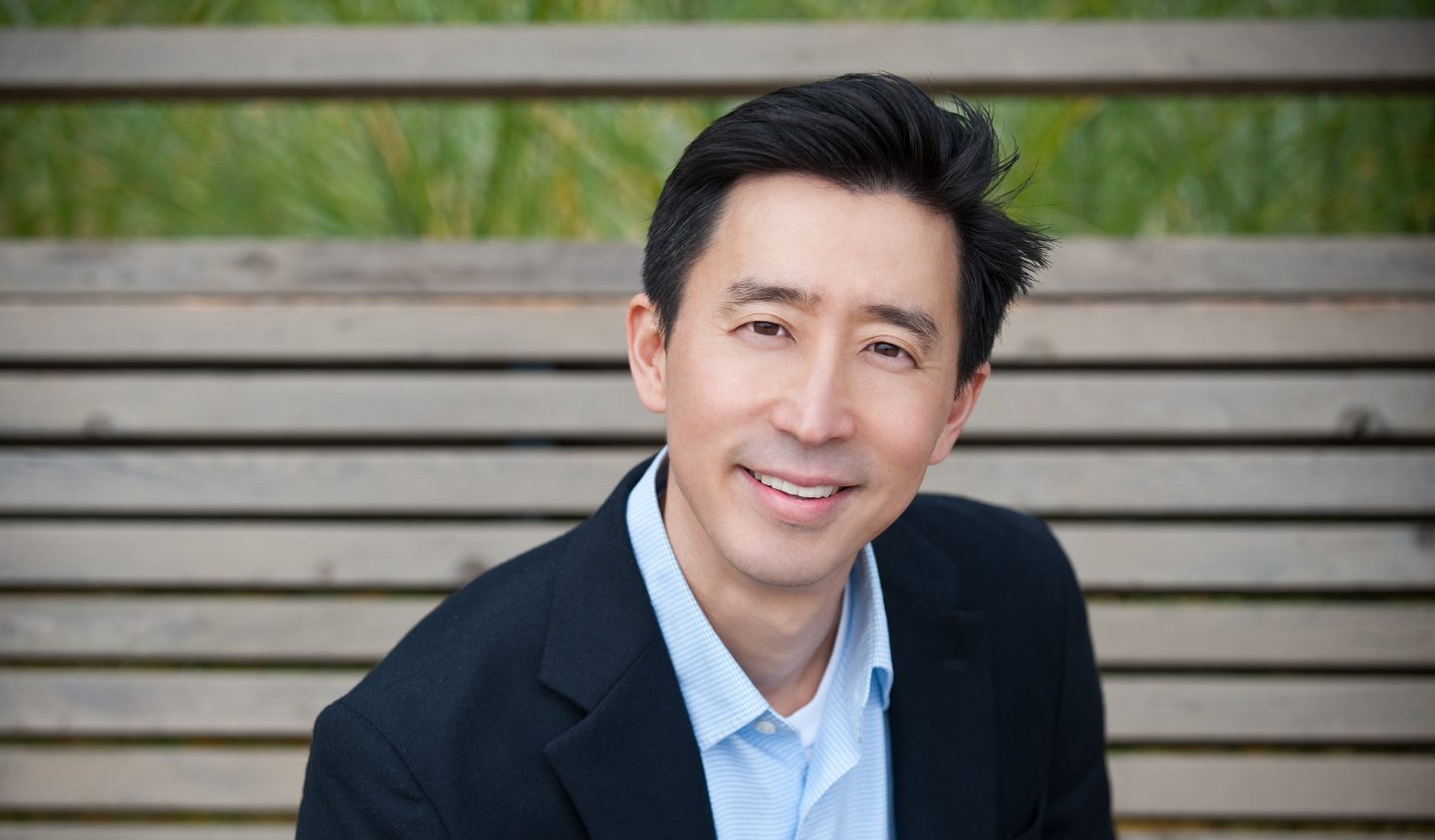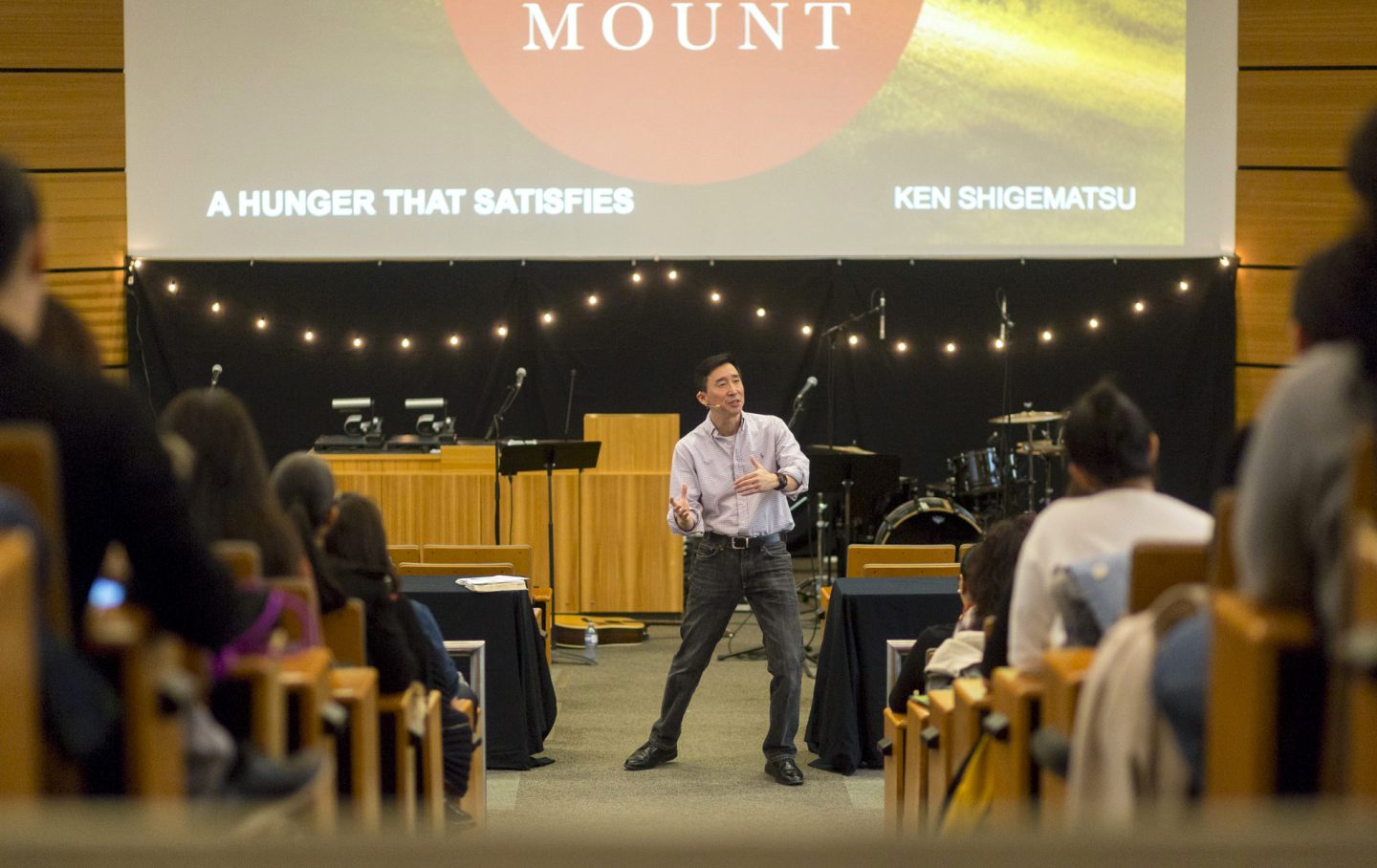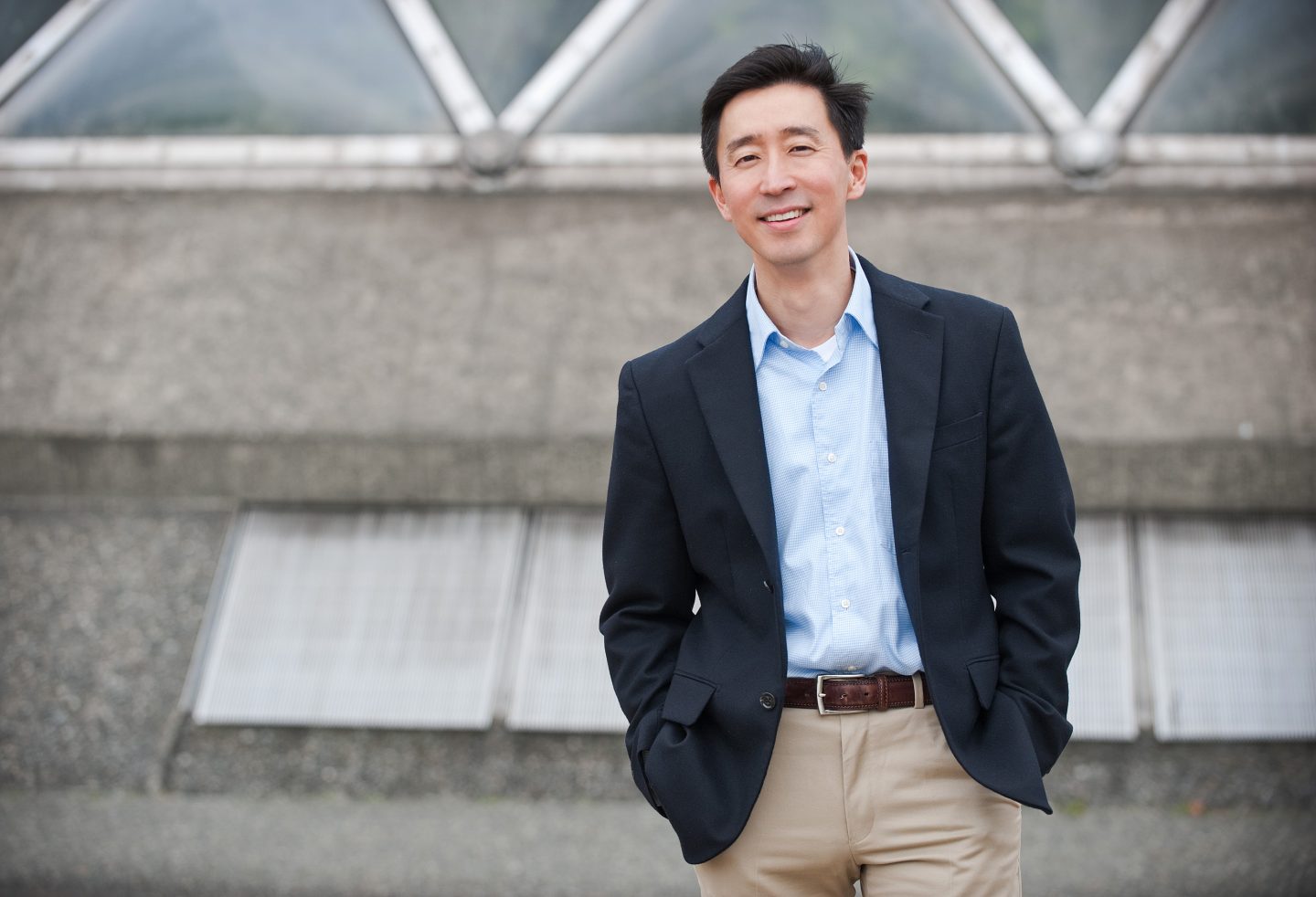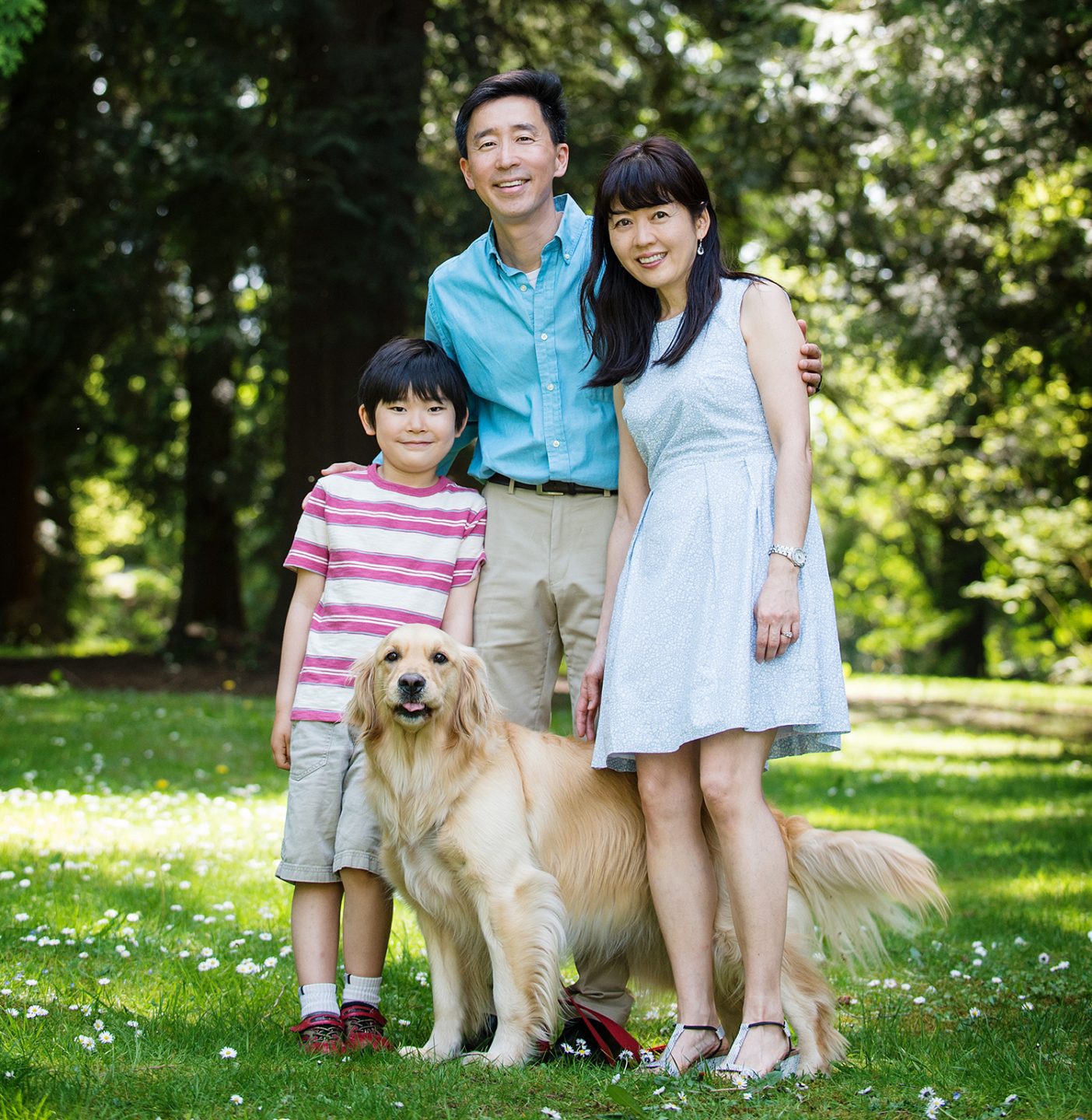“Step off the performance treadmill”: Ps Ken Shigematsu on resting to be present to God and others
by Tan Huey Ying // July 14, 2020, 10:59 pm

"I tend to value my worth by what I do and how much I do. But knowing that I am beloved by God makes me walk a little lighter,” says Senior Pastor Ken Shigematsu who shares how practising a rhythm of life helps him to be present to God and others. All photos courtesy of Ken Shigematsu.
It was just after lunch and Japanese Canadian Senior Pastor Ken Shigematsu was in his office counselling someone who had come to see him.
“Are you falling asleep?” the person asked.
“No, no, I’m praying for you,” said the pastor as he scrambled awake.
Ps Ken admits to Salt&Light with a sheepish laugh: “I was actually falling asleep.
“I was trying to do too much.”
He was “treading water” and on the edge of burnout, working so many hours that he “wasn’t especially present to God or to people” in those early years of his pastoral ministry in Vancouver.
7-11 life
Pastor Ken started pastoring at Tenth Church in 1996 – the 21st pastor of a church which had gone through 20 pastors in 20 years.
When he took over, the church only had about a hundred members left – a far cry from its heyday when there were over 1,000 congregants.

Ken Shigematsu is the Senior Pastor of Tenth Church in Vancouver, British Columbia, one of the largest and most diverse city-centre churches in Canada. Tenth Church has grown to over 2,000 members today under his pastoral care. Ps Ken practises forms of spiritual contemplation in his pursuit of God.
One day in the first week of his job, Ps Ken’s secretary walked into his office and told him: “Ken, if the ship sinks now, everyone will blame you because you were the last captain at the helm.”
Recalling that conversation, Ps Ken explained: “I think she was trying to motivate me, but I just felt really depressed.
“I did work hard. Not just for the glory of God and the good of His people, but to avoid the shame and humiliation of having a church sink under my leadership,” admitted Ps Ken.
Before seminary in America, Ps Ken moved to Tokyo and worked for Sony Corporation for several years. In Japan, he was a “7-11 man” whose workday lasted from 7am to 11pm. While he enjoyed his job preparing Sony employees to work in North America and in Europe and did not let up on opportunities to witness about his faith, he was driven by the need for success.
“I really wanted to win the respect of my boss to make sure I would be promoted and earn my raises and bonuses,” said Ps Ken.
Later, “even as a pastor, I felt desperate to succeed”.
Be the son, not the man
Workaholism is common especially in achievement-oriented Asian societies like Singapore and Japan, noted Ps Ken.
For a long time, you felt like you needed to be the guy who performed and produced.
Some motivation for work can be noble, born out of a desire to contribute by cultivating our God-given gifts and using them for the common good.
“In the ideal scenario, the primary motivation won’t be: ‘I’m doing this so that I will feel like I am enough’, or ‘so that I can overcome my shame.’
“Ideally, we do our work from a place of approval and of being loved, not for approval.”
His first encounter with that lesson drew tears. He confided: “I’m Japanese – I’m not supposed to show emotion to people. But I couldn’t help crying.”
A good friend with the gift of prophecy had come up to Ps Ken one day, saying that he sensed God had a message for him:
“For a long time, you felt like you needed to be the guy that performed on the sports field, that produced in the business world. Even now, you feel like you need to be the guy who delivers people and performs for them as a pastor.
“Ken, God is saying you don’t need to be the guy, you don’t need to be the man, you just need to be the son.”
The easy yoke that Christ wants us to wear is the yoke that He Himself wore of His Father’s unique love for Him.
The words hit home.
Said Ken: “It just sunk into my heart. I haven’t learned this lesson perfectly by any means. But internally, the weight of feeling like I needed to produce was lifted.
“I believe the easy yoke that Christ wants us to wear, is the yoke that He Himself wore – the yoke of His Father’s unique love for Him,” he posited.
“Jesus says, ‘Come to me, all you who are weary and burdened and I will give you rest. Take my yoke upon you and learn from me, for I am humble and gentle of heart, you will find rest for your souls.’” (Matthew 11:28-30)
“Jesus was celebrating the wonder of His Father’s unique love for him.Which means that you don’t need to establish your worth by what you do or your performance. Our value is determined by the simple, glorious fact that we are loved as the sons and daughters of God.”
He admitted: “I, by nature, tend to value my worth by what I do and how much I do. But knowing that I am the beloved makes me walk a little lighter.”

Ken is the author of the award-winning international bestseller, God in My Everything. His most recent book Survival Guide for the Soul was named by the Word Guild as the 2019 Christian Living Book of the Year. In it, Ken covers classic spiritual disciplines of the Christian faith in an easy accessible style.
Three rhythms to live by
Ps Ken’s realisation – that he was so overworked and exhausted that his ministry was no longer fruitful – was a wake-up call in more ways than one.
It was in that season where he was invited to join his mentor on a pilgrimage to the holy places of Ireland where he learnt about a way of life from Christian monks.
This rhythm of living the monks had developed, enabled them to experience God as alive and real in every part of their life – whether in the fields or the library or even in the kitchen.
Inspired, Ps Ken has since put into practice some simple habits of rhythm that he learned. He explains the relevance of these practices to disciples along with gems of leadership principles:
Rhythm #1: Keeping the Sabbath
It’s powerful, but not necessarily easy to ease into.
If a person has never taken a Sabbath, they’re going to feel restless at first. After about five minutes, you start thinking of all the things you ought to be doing on your to-do list and you feel guilty.
“There is a fruitfulness that comes out of being rested that isn’t possible if we are chronically tired and sleep-deprived.”
But if you make this a part of your life, you will find that every seven days, you’ll sense God’s presence more deeply and you’ll feel more rested.
I probably started to feel the benefits after a few months.
There is a fruitfulness that comes out of being rested that isn’t possible if we are chronically tired and sleep-deprived. Some of the most productive executives, including Jeff Bezos founder of Amazon, are leaders who get about eight hours sleep a night.
We’ll be more discerning, more creative and make better decisions. In fact, if a person is significantly sleep-deprived, they’ll exhibit the same symptoms as someone who is drunk.
For us to be in a position to make our greatest contribution, we need to be present to God, to people and to our decisions. And that means that we need to get adequate rest where we are conscious of the life that God wants to impart to us so that we can impart that life to others.
Jesus said: “What shall it profit a man or a woman if they should gain the world – financial, career goals – and lose their soul?” (Mark 8:36)
“Losing our soul is not just about eternal damnation, but about losing our connection with God in this life.”
I believe God wants us to experience a life of joyful contentment. It’s not just about eternal damnation, but it is about losing our connection with God in this lifetime.
I would consider myself a failure if I lost my connection with God and family in the headlong pursuit of “success”.
We need to think about new definitions of success. Not from the world around us but from God our Father and the people whom we value and respect the most.

Ken, with wife Sakiko, their son Joey, and Sasha the golden retriever who is often mentioned in Ken’s sermons. “I would consider myself a failure if I lost my connection with God and family in the headlong pursuit of ‘success’,” says Ken.
Rhythm #2: Praying the Welcoming Prayer and the Examen
I’m a Type 3 on the Enneagram: An achiever. My motivation to achieve comes largely from the desire to be esteemed, respected and loved. (Like the Myers-Briggs Type Indicator, the Enneagram is a personality framework describing archetypes of an individual’s worldview and motivations.)
But I’ve been praying something called the Welcoming Prayer which is based on Jesus’s three temptations in the wilderness.
I pray: “Holy Spirit, I consent to Your work in me. And I let go of my desire for affection and esteem. I let go of my desire for power and control. Let go of my desire for security.”
I don’t believe that we can overcome our primal instincts for affection and esteem, for power and control and for security; these are deeply embedded in our central nervous system. Our issues are in our tissues. And so we really need the powerful work of the Holy Spirit transforming us from the inside out. The Welcoming Prayer can foster that work.
“As leaders, we need a lot of energy in all kinds of directions, but love is probably the most important thing we can offer others.”
Another practice that I engage in is the prayer of thanksgiving; a 500-year-old prayer called the Examen, introduced by St Ignatius of Loyola.
I’ll identify two or three things across the day that felt like gifts. It might be a meaningful conversation, a morning run with our golden retriever Sasha, or a delicious meal enjoyed at home.
It may sound really simple, but data coming out of places like Harvard point out that if you pause for a few minutes each day and do this, it’ll change the way you move to the world.
It’s like when you’re thinking about buying something, you start to notice it everywhere.
So when you begin to take time to thank God for His gifts day by day, it will start to seem like more good gifts are coming into your life. Even though that may not objectively be the case.
You’ll have more gratitude, more joy, and you’ll feel more connected to God.
Parker Palmer, the Quaker elder, has said that a leader casts more light than shadow. As leaders, we need a lot of energy in all kinds of directions, but not the least of which is love. Love is probably the most important thing we can offer others.
Rhythm #3: Practising silent meditation
Before we offer a ministry for Christ, we need to receive a ministry from Christ. We can’t give what we don’t have.
Burnout doesn’t come from giving too much, it comes from giving what we don’t have.
“At any given time, there are 127 monkeys jumping around in my head. So I begin by simply taking some time to breathe.”
So I begin my day with some quiet meditation, consciously connecting with Christ and receiving His love, so that I have something to offer others.
That order is important.
Silent meditation is rooted in the Psalms where we’re called to be still and know that God is God. (Psalm 46:10)
I’m a very easily distracted person. At any given time, I can feel like there are 127 monkeys jumping around in my head. So I begin by simply taking some time to breathe – breathing in through my nose deeply, breathing out slowly.
But I’ll start to think of all the things I ought to be doing and I’ll reach for my Bible or a passage of scripture that I’m familiar with, and every time my mind wanders, I’ll simply repeat myself: “Be still and know that I am God.” (Psalm 46:10)
“Before we offer a ministry for Christ, we need to receive a ministry from Christ.”
Some people feel that this kind of meditative practice is selfish. But my friend, a very respected therapist in Vancouver named Dr Hilary McBride points out:
If a person meditates for just 15 or 20 minutes a day over four to six weeks, and then a person with disabilities were to enter a room, they are 100 times more likely to respond to that person.
So when we meditate on a compassionate God, we become more compassionate, we have more to offer others.
Higher ways
God’s values tend to be very different from those of our societies. Jesus said that the things that are esteemed by people are often despised by God.
CS Lewis, in his book The Great Divorce, said that fame on earth and fame in heaven are two very different things.
“I live with the growing sense that I am loved by Who matters most.”
This came to mind really clearly several years ago when my dad was dying. He was a journalist with the CNBC, the Canadian counterpart to the BBC. He was well-educated and a very reflective, thoughtful and kind man.
When he was on his deathbed, it struck me that what mattered to me most in that moment, weren’t his professional achievements, but who he was – his character, his love for God, quiet though it was, and that he was there for his family.
And I think that’s what matters to God more than achievement. Achievement is important. I’m not saying it’s not, but it’s who we are and it’s our love for Him and our love for the people that we interact with daily.
Recently, I’ve been thinking about how God loves us, even in our worst moments, when we’re not growing, not productive, and even when we’re not obeying God.
When I’m in touch with my humanity and my sinfulness and remind myself: ‘God loves me’, it lifts the burden. It makes me more apt to confess my sins, to receive forgiveness. And then that love really inspires me to a deeper level of faithfulness.
The truth that God loves us, no matter what, is really liberating. And I live with the growing sense that I am loved by Who matters most.
“If God doesn’t heal, then what?” A question Pastor Philip Lyn grappled with
Pastor Ken Shigematsu will be speaking at the upcoming Eagles Proclamation and Persuasion Institute (EPPI) 2020 organised by Eagles Communications. More details on the revised date of the preaching conference will be provided soon.
We are an independent, non-profit organisation that relies on the generosity of our readers, such as yourself, to continue serving the kingdom. Every dollar donated goes directly back into our editorial coverage.
Would you consider partnering with us in our kingdom work by supporting us financially, either as a one-off donation, or a recurring pledge?
Support Salt&Light


